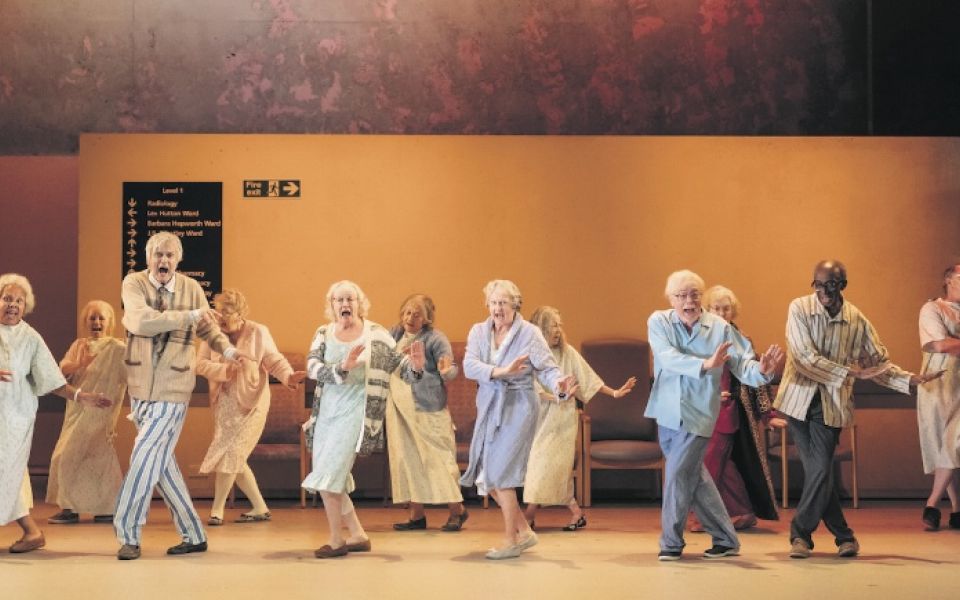Allelujah! review: Alan Bennett’s NHS play at the Bridge Theatre is cosy and cautionary all at once

It’s often said that the NHS and the BBC are the twin religions of Britain. If there’s a triplet, it’s probably Alan Bennett, who’s decided to make the health service the subject of his first new play in five years.
Allelujah! isn’t quite as sprightly as it sounds, being set on a geriatric ward, but it is as disarming and funny as we’ve come to expect from Bennett. The elderly incumbents of Bethlehem Hospital, a proud cradle-to-grave instition much beloved by the local community, find themselves the unwitting subjects of a fly-on-the-wall documentary. Much like the patients, the Beth, as it’s affectionately called, is seen as an anachronism in the last throes of existence and a burden on the British taxpayer in the face of swingeing government cuts.
Espousing this view in loudly metropolitan tones is Colin, a local lad turned Whitehall bureaucrat, who literally cycles in in head-to-toe spandex to proclaim that if the hospital is making a profit, as the people trying to save it claim, then it should reside in the private sector. Though this announcement drew a sharp intake of breath from the London audience, his character is largely a harmless caricature.
Much more sinister is Deborah Findlay as a solidly po-faced Sister Gilchrist, a nurse with unorthodox methods to say the least, and she is ably supported by a smiley Sacha Dhawan as Dr Valentine, a junior doctor with eerily topical visa problems.
The real magic is to found in the dialogue. You can hear Bennett’s lackadaisical Yorkshire burr in every line and his deep understanding of English eccentricity in every keen observation. Another thing Bennett understands is nostalgia. The elderly patients frequently break out into fantasy song and dance numbers, nominally of old war songs while dressed in their finest garb, in sequences that are as tragically poignant as they are adorable. It’s also worth noting how wonderful and unsual it is just to see this many older actors on stage at the same time.
There’s a baseline of enjoyment with Bennett. You know you’re going to have a pleasant time, coddled in cosy characterisation and familiar surroundings. Yet bubbling underneath the cuddly conversation is a quiet fury with the unfeeling direction the health service – and by extension, the country – is blindly marching towards.
Though it’s restrained, the anger is palpable particularly towards the end when the play bursts forth into an untidy finale. Valentine’s sudden monologue, for instance, imploring the audience to “throw its arms wide” to newcomers would have felt less didactic had it been integrated into the action.
The play is at its best when it shines a light into the dark corners of everyday cruelty and the ways in which we, as a country, choose to discard of our elderly. In the charming way that only Bennett can, he’s written a state-of-the-nation play that’s both a furious idictment and a flattering appeal to our better natures.